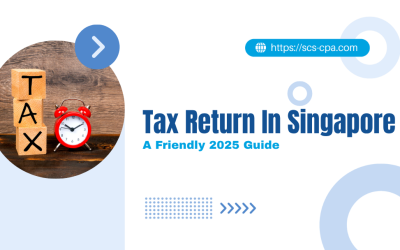What’s so hard about tax compliance?
Tax compliance is difficult for finance teams due to the complexity of ever-changing tax rules. Meeting strict tax deadlines is crucial to avoid penalties, but it’s challenging with workflow bottlenecks. Communication for tax-related info between departments and stakeholders is tricky, and managing risks like financial penalties or legal issues is a big concern. Ensuring the team knows about tax rules is vital, and being ready for tax audits is a challenge too. Plus, managing the costs of implementing and maintaining tax processes is crucial. To effectively manage your business’s tax obligations and ensure compliance with evolving regulations, exploring our company income tax services can provide the guidance needed to navigate complex tax matters.
Playing it safe, and small
That’s why It’s common for finance teams to be conservative and avoid ambitious tax optimisation projects – the fear of inadvertently violating evolving tax codes looms large.
The concern of accuracy
One of the primary reasons for this reluctance is the challenge of ensuring the accuracy and integrity of financial data. Finance teams encounter difficulties in maintaining precision, particularly when manual processes or disparate systems are in use. The hesitancy to commit to ambitious tax projects stems from the fundamental concern that inaccurate financial data could lead to non-compliance, penalties, and regulatory repercussions.
Opportunities for system improvement
The integration of multiple systems further compounds the issue. Ambitious tax optimisation projects often require seamless data flow, and the complexities of integrating disparate systems can introduce risks of errors and inconsistencies. Finance teams, grappling with these challenges, may be cautious when working with messy departments or operations.
Timely tax compliance
The stringent nature of tax deadlines introduces another layer of uncertainty. Finance teams face challenges in establishing efficient processes to ensure timely filing and reporting. The fear of potential bottlenecks in the workflow and the associated risks of missing deadlines contribute to the hesitation to take on ambitious tax initiatives.
Alignment
Communication gaps and collaboration challenges within the organisation are additional factors that may deter finance teams from committing to ambitious tax projects. Coordinating with different departments and stakeholders for tax-related information becomes more challenging, increasing the likelihood of errors and delays. This implies a longer runway to get all parties aligned on standards and processes.
Getting to the root!
At the core of these concerns is the constant uncertainty about the accuracy of financial data. The fear of non-compliance, financial penalties, and the potential damage to the organisation’s reputation are rooted in the ongoing challenge of maintaining precise and reliable financial records. The reluctance to commit to ambitious tax optimization projects reflects a fundamental apprehension tied to the uncertainty surrounding the integrity of the financial data in the possession of finance teams. Addressing this root cause is pivotal in instilling confidence and willingness to undertake transformational tax initiatives within the organisation.
Gradual implementation of sound operations
To mitigate hesitancy and foster a proactive approach toward ambitious tax optimisation projects, organisations can implement targeted solutions to address the root cause of uncertainty regarding the accuracy of financial data. Here are some strategies:
1. Invest in Automated Financial Systems:
Implementing automated financial systems can significantly enhance accuracy and reduce the reliance on manual processes. These systems streamline data entry, minimise errors, and ensure real-time updates, thus increasing the overall reliability of financial data.
Large organisations can consider a comprehensive Enterprise Resource Planning (ERP) system that automates financial processes, including data entry, reconciliation, and reporting. Otherwise, there are many off-the-shelf specialised accounting softwares, like Xero or QuickBooks, that integrate seamlessly with existing systems, providing automation for routine financial tasks and reducing manual input errors.
2. Integrated Software Solutions:
Consider adopting integrated software solutions that facilitate the seamless flow of data across different departments. This helps eliminate silos and ensures consistency and compatibility in financial information, making it easier to undertake ambitious tax projects that require interconnected data.
Likewise, adopting an Enterprise Resource Planning (ERP) system that integrates financial modules with other organisational functions, ensuring a cohesive flow of data is a possible solution. Otherwise, depending on your industry, there may be integrated software solutions that cater to the unique needs of the organisation, fostering compatibility and consistency in financial information across departments.
3. Utilise Predictive Analytics:
Employ predictive analytics tools to identify potential errors or discrepancies in financial data before they become significant issues. This proactive approach allows finance teams to address issues preemptively and ensures a higher level of data accuracy.
In this area, many finance teams have their customised excel tools that have served them well. Today, we have many more predictive analytics tools that are integrated with existing financial systems to proactively identify patterns and anomalies in financial data. This could reduce time needed for exporting their financial data. Some cloud-based predictive analytics solutions can analyse historical financial data to predict potential errors and discrepancies.
4. Engage External Experts:
Seek the expertise of external tax consultants or advisors to provide insights and guidance on compliance matters. External experts can offer a fresh perspective, ensuring that the organisation stays well-informed and compliant with the latest tax regulations.
Partner with a reputable tax consultancy firm that specialises in the industry, providing external expertise on compliance matters. A short term option can also be to retain individual tax advisors or consultants with a proven track record in navigating complex tax regulations, offering personalised insights for the organisation.
5. Continuous Training and Education:
Invest in ongoing training programs to enhance the awareness and skills of finance teams regarding tax regulations and compliance requirements. This ensures that team members stay informed about changes in tax codes and are better equipped to manage accurate financial data.
Enrol finance teams in industry-specific workshops and seminars conducted by reputable training providers to stay updated on tax regulations and compliance requirements. In the long run, you can also Implement an online learning platform that offers interactive courses and resources focused on tax compliance, allowing finance teams to enhance their knowledge at their own pace.
6. Establish Clear Communication Channels:
Improve communication channels within the organisation, especially those related to tax matters. Clear communication ensures that relevant departments share vital tax-related information promptly, reducing the likelihood of errors and delays.
7. Implement Robust Internal Controls:
Strengthen internal controls to enforce data accuracy and integrity. There should also be good enforcement of a comprehensive internal control framework that includes periodic financial audits, segregation of duties, and regular reviews of financial processes. Regular audits and reviews of financial processes can identify and rectify discrepancies, instilling confidence in the reliability of financial data.
For teams that want to accelerate their transformation
For Singapore Corporate Services (SCS), we partnered with Xero to make complex processes manageable for organisations like yours.
We can help your organisations set up and start using Xero’s collaborative features for data entry and bank reconciliation, creating financial transparency within your company for the finance team. If legacy softwares and systems are available within Xero’s marketplace of apps, we help you integrate those solutions too.
Our team, comprising experienced accountants and tax advisors, can proactively guide and support you through the complexities of tax optimisation projects. We’ll also provide training programs, so that your staff is well-informed and equipped to navigate the nuanced challenges associated with tax compliance.
Implementing robust internal controls and utilising Xero’s reporting and analytics capabilities are integral activities that can help you be confident in the accuracy of your financial data and focus your efforts more meaningfully.
Feel free to contact us and discover what working with an accounting partner can do for you.
Corporate Income Tax Malaysia: Rates, Filing, and Strategic Compliance
Understand Malaysia’s corporate income tax system. Learn current tax rates, SME tiers, filing deadlines, LHDN requirements, penalties, and more.
Understanding the Core Types of Audits and Their Roles in Accounting in Singapore
Learn the key types of audits in Singapore to build trust and stay compliant. Examples are statutory, internal, GST, and forensic.
Tax Return In Singapore: A Friendly 2025 Guide
Want to be a responsible business owner? Read this guide to tax return in Singapore to help understand tax filing and play your part.




